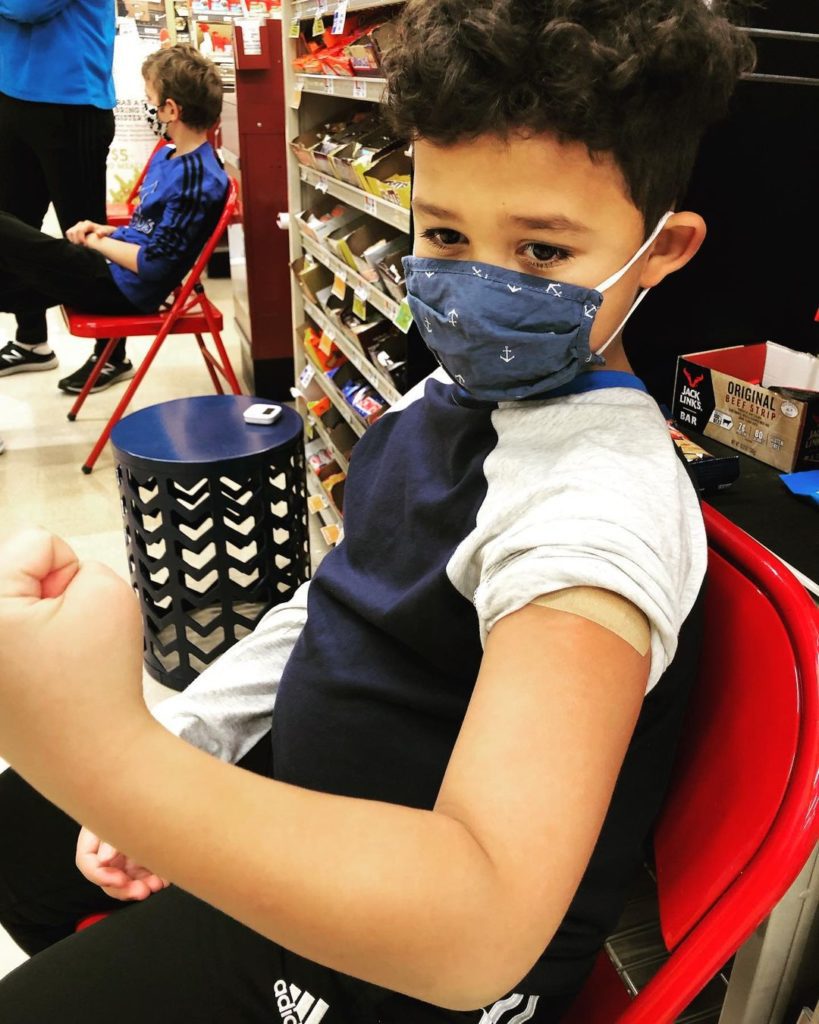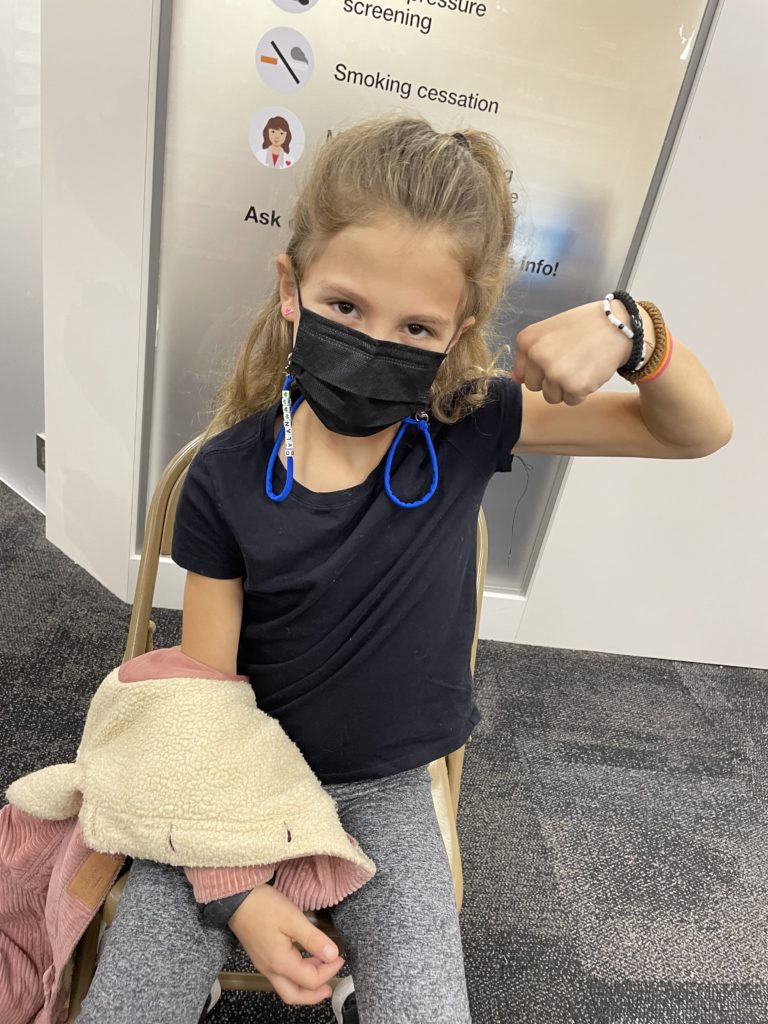 Caleb, age 8, after getting his first COVID-19 shot in Albany, NY
Caleb, age 8, after getting his first COVID-19 shot in Albany, NY
With the recent approval of the Pfizer vaccine for kids ages 5 to 11, millions of parents nationwide have already vaccinated their kids—and millions more are weighing the decision. As parents, we always want to have the most information we can when making decisions for our kids’ health, and that’s why we turned to the experts at Yale Medicine, to go over the most common questions we’re hearing about the vaccine and kids, from side effects to what it means for your travel plans, playdates and more. Read our conversation with Magna Dias, MD, Regional Director for Pediatric Inpatient Services at Yale New Haven Children’s Hospital and chair of pediatrics at Bridgeport Hospital in Bridgeport, CT.
What are the most common side effects in kids ages 5 to 11 so far?
The most common side effect is a sore arm followed by being tired. These go away after 1-2 days. The fevers and chills we see with adults after the 2nd dose is not common with kids.
If you have a child in this age group being vaccinated and a child aged 0 to 4 who is not able to get vaccinated, how does having your older child vaccinated change anything for your family?
It makes the risk lower for the family to have more people vaccinated. The younger kids have less risk at home of catching it from their older siblings. In terms of travel, this is something that each family needs to consider with their pediatrician. Until all are vaccinated, there will be a higher risk. But how much risk depends on the individual situation.
Are there any kids in this new age group who should *not* get vaccinated?
If a child has an allergy to polyethylene glycol or polysorbate, they should speak to their pediatrician. These are uncommon and your pediatrician can advise you. Oral medicine allergies and food allergies including eggs aren’t reasons not to get the vaccine.
What is myocarditis and how common is it in this age group after vaccination?
Myocarditis is a disease that causes inflammation of the heart muscle. When it’s caused by a virus like Covid-19, it is very serious. In kids after the vaccine, it is very rare. We expect about 25 kids in a million who get the vaccine [to get it]. It’s also much milder than getting myocarditis from infection from the virus. Most kids who have vaccine related myocarditis have chest pain within a week after receiving the shot. No kids have died and cases fully recovered within 1 month.
What would you say to parents who believe kids don’t get very sick…so they will skip vaccination?
I would say fortunately you are right that most kids don’t get that sick. The same is true for adults. But it doesn’t mean that kids can’t get really sick. In kids age 5-11, it’s now the 6th leading cause of death. Kids in this age group should not die. It’s also the age group that we see MIS-C, the inflammatory syndrome that affects kids after COVID and makes them very sick. And unfortunately 1 in 3 kids who get very sick with COVID had no other medical problems.
Can vaccinated kids safely play with unvaccinated children and vice versa?
The risk for the vaccinated child is lower but not zero. This is a decision the parent needs to make. But here are the things that would make it safer: play outdoors, wear masks, and no play dates if either child has any symptoms like a runny nose, cough, diarrhea, or fever. I would limit eating during the play date to avoid needing to take off the masks.
Anything else you’d like to add?
Now a million kids aged 5-11 have been vaccinated in the US without any serious side effects reported.
This post originally appeared from The Local Moms Network.

